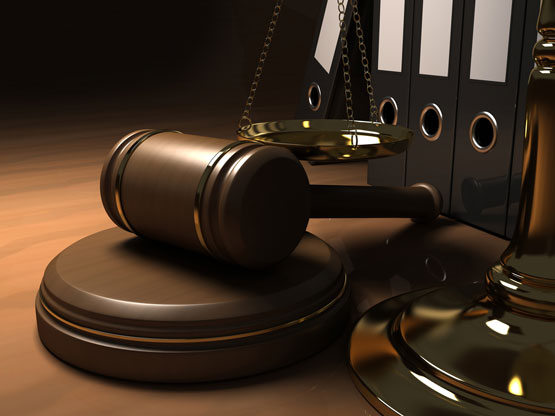
• A Baltimore judge declared yet another police officer not guilty in the Freddie Gray case.
• The Supreme Court by a 4-to-3 margin -- thanks to Justice Anthony M. Kennedy, not the passing of Justice Antonin Scalia -- muddied the waters on affirmative action, although both sides would like us to believe the decision is far more definitive than it is.
• An Obama-appointed district court judge strike down anti-fracking rules, a sign of restraint on the administrative state.
• The Supreme Court, by virtue of a 4-to-4 deadlock, leave in place a lower court ruling blocking the president's unilateral immigration decree, underscoring the wisdom of the GOP's move to hold up confirmation on Judge Merrick Garland but also reminding Democrats that we should hope judges continue to act as a restraint on the executive branch, which, after all, could wind up in Donald Trump's hands.
Let's take each in order.
On the Baltimore acquittal, The Washington Post reports, "The verdict announced Thursday in the trial of Caesar Goodson Jr. is the second acquittal handed down by Judge Barry G. Williams in the case.
The judge last month acquitted the second officer who went to trial in Gray's death. The first officer's trial ended in a hung jury." The entire prosecution has been a disaster for the Baltimore district attorney, whom many rightly criticized as responding (literally) to the mob's desire for vengeance and dramatically overcharging the defendants.
(The DA has also been slapped down for prosecutorial misconduct in keeping certain evidence from the defendants.)
It would be helpful if liberal pundits stopping rushing to judgment on these kinds of individual criminal cases (which require a heavy burden of proof, substantial protections of the accused, etc.). They are a poor forum to resolve knotty social issues, and inevitably wind up aggravating rather than resolving racial tensions.
On the affirmative action case, in Fischer v. United States, the second time the University of Texas's affirmative action program reached the high court, Justice Elena Kagan (who recused herself) would presumably have canceled out the vote of Scalia, who had consistently found race-based "diversity" programs to violate the 14th Amendment.
In essence, Kennedy blinked here, retreating from the first Fischer case in which the court insisted on "strict scrutiny" for use of race in admissions programs. In Fischer II, he applied the strict scrutiny test based on the particular facts at issue in what critics would say isn't that strict.
Hans Von Spakovsky explains:
"In today's ruling, a majority of the Court decided to take the university at its word that it needed to use race-conscious admissions because the top ten percent plan alone was not sufficient to meet its 'diversity goals.' As Justice Alito pointed out in his thorough and stirring dissent, this decision allows school officials to 'justify systematic racial discrimination simply by asserting that such discrimination is necessary to achieve 'the educational benefits of diversity,' without explaining-much less proving-why the discrimination is needed or how the discriminatory plan is well crafted to serve its objectives."
Both advocates and opponents of race-based affirmative should be careful, however, in sweeping assertions about the precedential effect of the case. Each of these decisions is likely to turn on the specific circumstances of the plan at issue, the school's previous attempts to create diversity and the alternatives available to the school. The real loser here was judicial clarity.
Then there is the anti-fracking case:
U.S. District Judge Scott Skavdahl issued a ruling late Tuesday invalidating the regulation, saying the Interior Department lacked the authority to issue it because Congress hadn't given the agency such authority. The same judge last year issued a preliminary injunction blocking the rule until he made a final decision.
While Democrats and environmental activists are upset, they should be relieved that an independent judiciary does not allow the executive branch bureaucracy to run amok. With Trump in the wings, all sides should be careful about evading Congress, the branch constitutionally entrusted to make laws, in favor of government by edict from unelected and unaccountable bureaucrats. If Democrats do not like the result, there is good news. There is an election coming up.
The people can vote for a president and Congress who want to ban fracking and let them try to pass legislation. It's not perfect, but it is the system we have -- and a good brake against untrammeled executive power.
That brings us to the immigration case. The Post reports:
The court's liberals and conservatives apparently deadlocked, which leaves in place a lower court's decision that the president exceeded his powers in issuing the directive.
Obama's peevish reaction blaming the Senate for not confirming Garland is odd. Does he know for certain how Garland would rule? Presumably the judge would have considered the facts and the lower court's rationale. It's a pity if the president expects his nominee simply to follow the party line.
It is not correct to say there is no decision on this. The Supreme Court's decision leaves the lower court's decision in place. Other district and appeals courts can choose to follow or disregard it in the future. The extent of executive power will remain an issue. As The Post noted, it does mean "the issue of immigration, which already dominates the presidential election, escalates in importance." Once again critics of court restraint should be careful what they wish for. They certainly don't want a xenophobic populist president rounding up people or building a wall even when Congress refuses to do his bidding.
We'll have more to say on the Supreme Court rulings and reaction.
Comment by clicking here.


 Contact The Editor
Contact The Editor
 Articles By This Author
Articles By This Author
